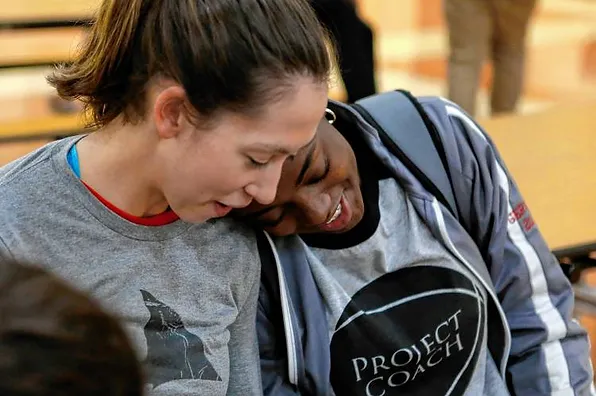Smith College Project Coach, Academic Year 2021-2022

Enhancing Current Model Through Social Capital Education and Development
In 2021, Social Capital Builders trained five of Project Coach’s staff on how to incorporate the social capital model into their program. We focused on how social capital can help young people in their transition from youth to adulthood. Then, we worked with the Project Coach team to develop social capital training for their program participants. They invited several program alumni to participate in the training and share their own experiences and successes.
Due to pandemic-related challenges, Project Coach was not able to execute a full program for the Spring 2022 semester. Instead, they ran a two-day workshop for five of their rising seniors with social capital as a foundation.
Here are some outcomes reported by the Project Coach team:
- Each of the five youth created an action plan that included identifying connections that could help them reach their goals for after high school.
- Each youth explained how they would make new connections to help them reach their goals.
- Graeham Dodd, the Director of the Education Initiative at Smith College shared that “it was STRIKING to hear how every single person in the room - youth, college students, and staff alike - referred to the significance of relationships - capital - in their action plan. Participants talked about ‘connections being everything’ and their plans for connecting to people who could help them with each step of their explorations and actions going forward”.
- The Project Coach team used sports-related language that their students were already comfortable with to explain social capital concepts. “We talked about how it is really scary and confusing to do life transitions by yourself, and how instrumental it is to have a team and coaches - ‘coaches help you get going and stay the course.’” This is an example of how a client can modify our social capital training to fit their specific program needs.
- In their social capital training, the staff learned about the importance of signaling which means keeping your connections updated on your goals and progress towards them. They were able to directly apply what they learned in training to their program by discussing this idea with their program participants.
- In sharing the impact that the workshop had on participants, Dodd said, “One wise Smithie discussed the power of building three kinds of social capital relationships: mentorship, sponsorship, and allyship.”
- Dodd explained that incorporating social capital into their program made it more beneficial for their students because they were able to provide “more tailored supports”.
- The Project Coach team plans to continue to incorporate social capital more in the future with the goal to create a “focused and dedicated curriculum to these things in our program”.
